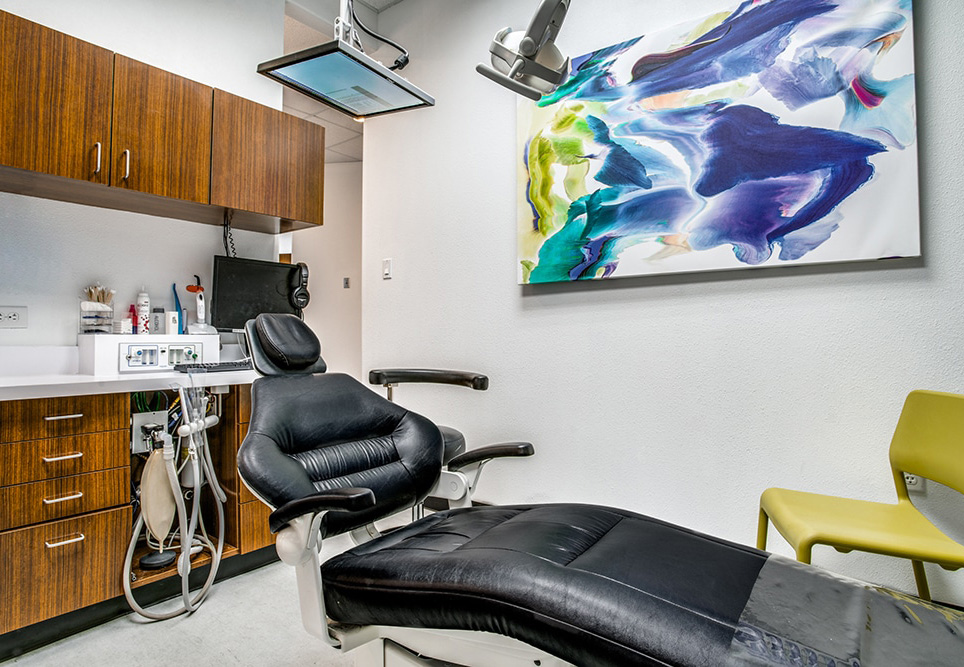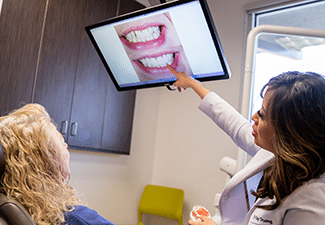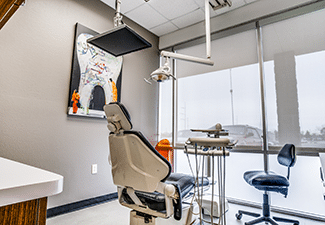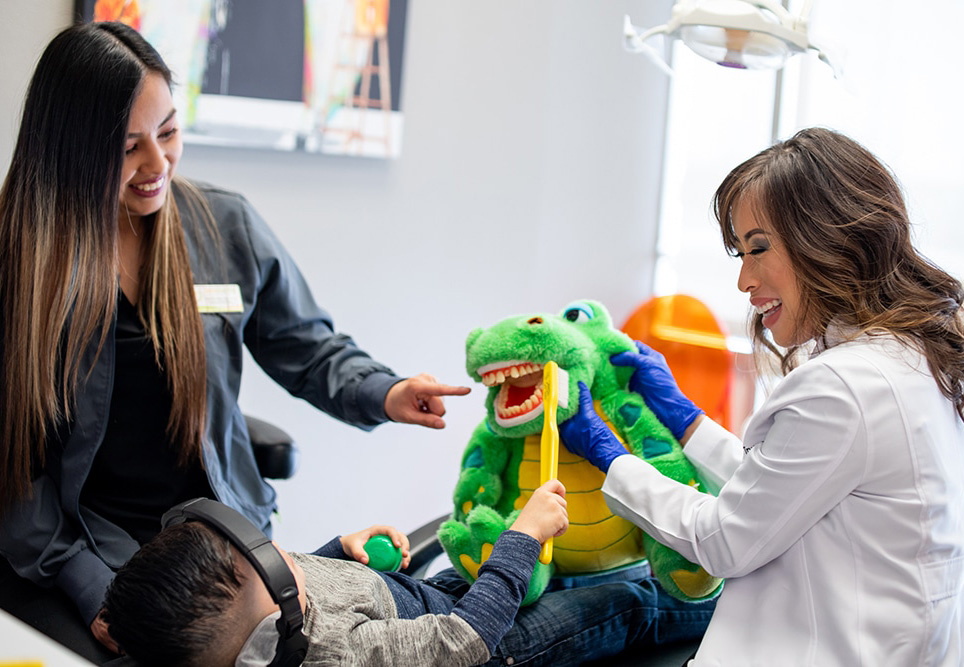
When you have a toothache, this could be caused by everything from changes in elevation to sinus or allergy issues. However, if the pain persists for more than a few hours, or for perhaps a day or more, then the pain could be related to tooth decay, dental infection, or other oral health issues. In today’s blog, your Dallas, TX, dentist will talk about how we approach restoring a decayed or damaged tooth, and bring relief for your aching teeth! We will also look at simple actions you and your family can take each day to limit the risk of oral health complications, like tooth decay!
The Causes of Tooth Decay
When people encounter persistent aches and sensitivity, the cause is often tooth decay. A cavity forms when bacteria make contact with the dentin, the sensitive structure that makes up most of your tooth. Typically, the enamel coating the teeth prevents this, but poor oral hygiene habits and a diet high in sugar and starch could lead to bacteria breaking down bits of food and drink, creating plaque buildup that coats the teeth and weakens enamel. When the enamel erodes, the dentin is exposed to bacteria. Other causes include teeth grinding or injury that damages the enamel and exposes the inner dentin. Once a tooth is decayed, the cavity will continue to grow and spread unless treated, eventually leading to an infection.
Infected Teeth
At the center of your tooth is a collection of living tissues that oversees the flow of blood and nutrients to and from each of your teeth. The pulp is essential for a healthy and whole smile. However, if a cavity reaches the pulp, or damage exposes it, then a tooth could become infected. Along with sensitive teeth and toothaches, people could experience pain when they bite down and chew, swelling near the tooth, a foul discharge from it, fever, headaches, or jaw pain. Unless treated, the infection could become so severe the tooth needs to be extracted to prevent the infection from spreading to surrounding teeth. To avoid tooth loss, we may suggest treatment to halt the spread of infection and preserve the tooth.
Fillings
How do we stop a toothache caused by cavities? Well, we may suggest a composite resin filling. The restoration only takes a visit to completely, and contains no metal. As a result, your filling is safe for people of all ages, and the mixture of glass and acrylic that makes up the composite resin can be color-matched to blend with the rest of your tooth. We start by removing decay and then thoroughly cleaning the tooth itself. We then prepare and place the material before curing it under a light. As the composite resin cures, the dentist will sculpt and mold the tooth. Finally, we polish it for a more lifelike appearance. If a tooth is infected, then we could perform a root canal, which involves removing infected tissues from within the tooth, before adding a restorative filling and capping it with a custom-made crown. We also administer a local numbing agent and also have sedation to ensure the process is comfortable for you!
Bonding
Your discomfort could also be caused by a cracked or chipped tooth, or one damaged due to teeth grinding. To repair the damage and restore the tooth, we may suggest dental bonding. The procedure only takes one visit to complete and employs the same composite resin used in our tooth-colored dental fillings. In addition to repairing minor damage, we also mask cosmetic issues to help improve the overall beauty of the tooth as well.
Crowns
If you have substantial cavities or damage, then a custom-made crown could help. Created from durable and lifelike materials, the crown is designed to absorb daily bite forces and provide a dependable chewing surface. We also color-match the ceramic or zirconia we use to ensure it blends with your tooth, providing an esthetically-pleasing form of restoration.
Preventing Future Toothaches
What can be done to avoid future discomfort? First, make time to see us every six months. With a checkup, we keep a close eye on your smile for the earliest signs of trouble, often treating cavities before you experience discomfort! Our team also cleans the teeth, removing all plaque and tartar buildup that could otherwise increase the risk of tooth decay. At home, try to cut back on sugary and starchy foods and drinks, as the particles they leave behind could feed harmful bacteria. Instead, drink more water and enjoy snacks like fruit, veggies, whole grain crackers or bread, cheeses, low-fat yogurts, nuts, or sugar-free gum. At home, be sure you and your family continue to brush and floss as recommended. You should brush when you wake up and then once more before going to bed, with each session lasting about two minutes. Make sure the toothpaste you use also contains fluoride, as this helps strengthen your protective outer enamel. You also need to floss every evening as well, as flossing removes what is beyond the reach of a toothbrush. If you have any questions about what can be done to avoid the onset of tooth decay, or about treating for aching or sensitive teeth, then please contact our team today. We know how to create lifelike and durable restorations that match your smile, preserve bite balance, and help prevent further discomfort.
Your Dallas, TX, Dentist Offers Restorative Dentistry
Our team is ready to help you address your discomfort so you enjoy a comfortable, healthy, and beautiful smile for years to come. For more information on our approach to restorative dental care or preventive care to avoid the onset of cavities, infection, and other common oral health issues, then please schedule a consultation by calling the Viva Dental Family Dentistry office nearest you at (214) 337-7800 (Dallas) or (972) 437-6000 (Richardson). We’re ready to help you enjoy a whole, healthy, and attractive smile again with a personalized approach to treatment for kids and adults alike.












